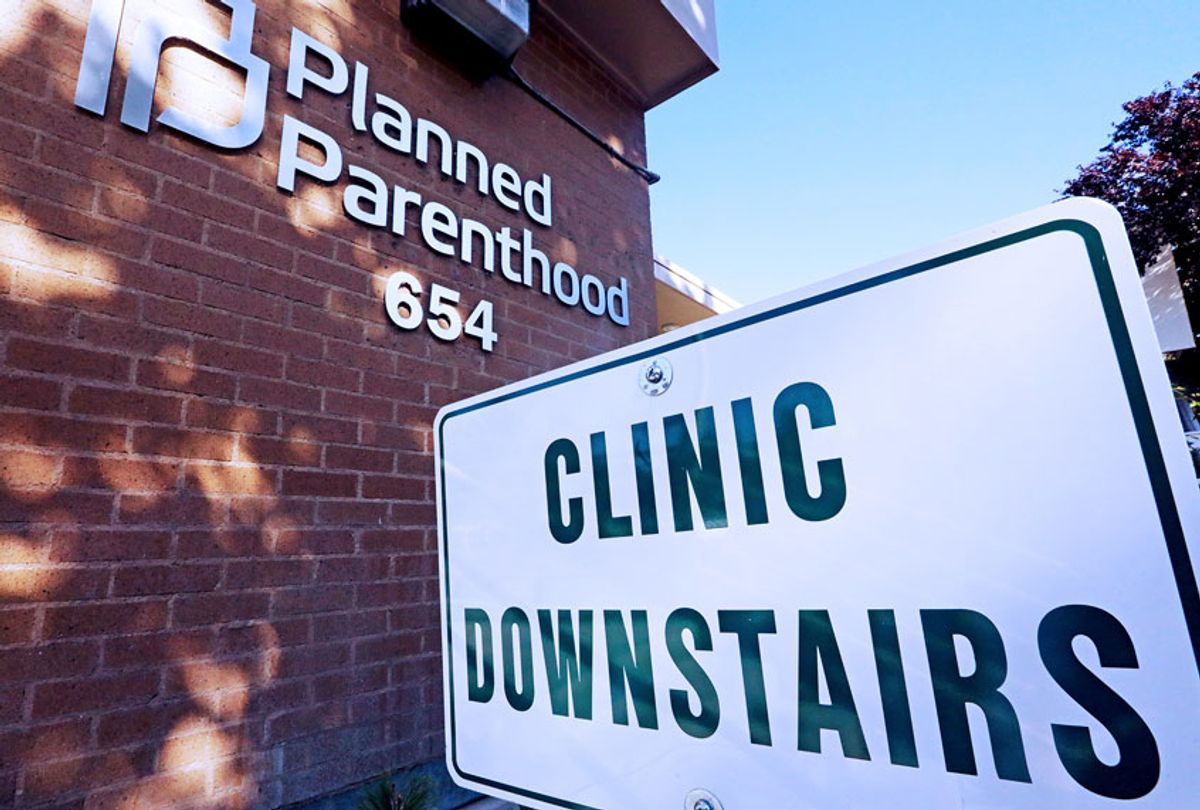As soon as stay-at-home orders came down across the country, a number of Republican-controlled states tried to argue that abortion was a "non-essential" service and that women who want abortions could just wait until the pandemic was over. That's a blatantly false and cruel argument. Trying to bar women from abortion is bad enough in regular times, but it seemed even more sadistic during a pandemic and an economic crash, when financial and health concerns weigh more heavily than ever on women deciding whether or not continue pregnancies.
As the opportunistic abortion bans are fought over in the courts, we now have hard numbers showing how much the need for abortion — and for financial support for abortion services — has risen during the coronavirus pandemic.
"There are absolutely increases in calls for help, and that's compounded by the complexity and difficulty in getting to care," Yamani Hernandez, executive director for the National Network of Abortion Funds, told Salon.
Abortion funds operate by giving financial and other forms of assistance, such as housing and transportation, to women seeking abortions. Some of these groups are seeing sharp increases in women seeking help. Tampa Bay Abortion Fund saw a 30% increase in callers in April. Chicago Abortion Fund saw a 35% increase in callers in March and April. Funds in Ohio and Texas have doubled their spending limits, and in Texas, at least, are still exceeding them.
Meg Sasse Stern, who directs the abortion fund for the Kentucky Health Justice Network, told Salon that her group has seen an uptick of calls but believes it's going to increase dramatically over the summer.
She suggested the increase "was delayed because of initial shock and stress," saying that some women put off having an abortion at the beginning of the lockdown period. Now that lockdowns have dragged on for seven or eight weeks in most places, getting what is obviously a time-sensitive procedure like abortion is now much harder and, for some women, more expensive as well.
The delays women are experiencing, Sasse Stern explained, are understandable. Low-income Kentucky women, who often live in rural areas, already face serious financial and domestic obstacles to getting abortion, and the pandemic has made the situation far worse.
"If someone does not have access to a reliable vehicle or a supportive companion, their ability to travel across the state becomes a lot more complex," she explained.
"In the past, we would be able to offer up a ride with one of our volunteers, and we cannot do that now," she continued, noting that the fund is not comfortable with asking volunteers to risk contracting the coronavirus by giving rides.
Sasse Stern also explained that "child care has become a more complicated barrier," as stay-at-home orders make it far more difficult for women to find someone who can babysit their children for the hours — or days — it may take for them to travel somewhere and get an abortion.
Subsequently, many women may be experiencing delays that push them into the second trimester, where abortion becomes both more expensive and a more intensive procedure.
Amanda Kifferly, vice president of abortion access for The Women's Centers — which operate in New Jersey, Pennsylvania, Connecticut and Georgia — explained that she's seeing some of the ways that the coronavirus is making it harder for women to get an abortion, which was already difficult because of all the needless bureaucratic obstacles put in place by conservative legislators.
One patient, she explained, had insurance coverage for abortion, but getting it approved required a referral. Even that, which involved a visit to a second office, is a step that's become much more fraught in the era of coronavirus, especially when health care centers who may have treated infected people seem especially risky.
Kifferly said she hoped that the obstacles to getting any kind of medical care under these conditions, much less a time-sensitive procedure like abortion, would help highlight the need for more access to telemedicine.
Early in pregnancy, women can abort safely with telemedicine by consulting a doctor on video chat or the phone, and having abortion pills prescribed for mail delivery. The American College of Obstetricians and Gynecologists says that "telemedicine is safe, effective, highly acceptable to patients, and facilitates access to care for women in rural areas."
But now even women who live in cities and are close to an abortion clinic might want the telemedicine option so they don't have to manage pandemic-created obstacles or visit a clinic where they fear exposure to the coronavirus.
"We had had our eyes set" on expanding access to telemedicine, Kifferly said. "It's in line with the way that we feel about abortion," which is that it should be accessible to all without needless delays or restrictions.
The pandemic has made it easier, she said, "to not only bridge the conversation with politicians, but also with media and with patients," by clarifying why it's so important for people to have access to medical care without leaving home whenever that's a practical option.
The anti-choice movement has long depicted women who need abortions as careless or lazy, as a way to justify restrictions on access. But during this pandemic, more Americans are seeing how a medical emergency can upend your life, and perhaps understanding that it's not always so easy to juggle transportation, child care, and employment. Maybe this period of universal turmoil will increase empathy for women who need abortions — not just during the pandemic but into the future — and increased awareness of why it's wrong to throw needless obstacles in front of women whose lives already contain more than enough of those.



Shares